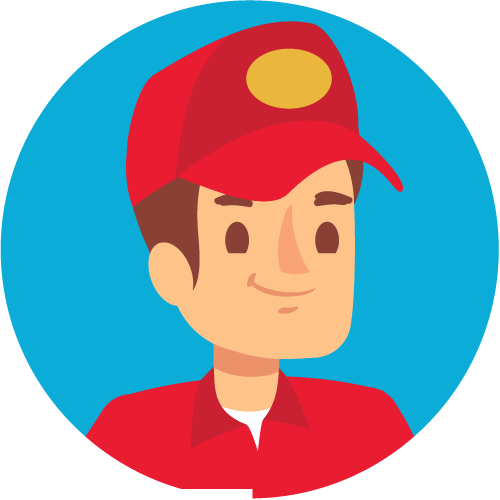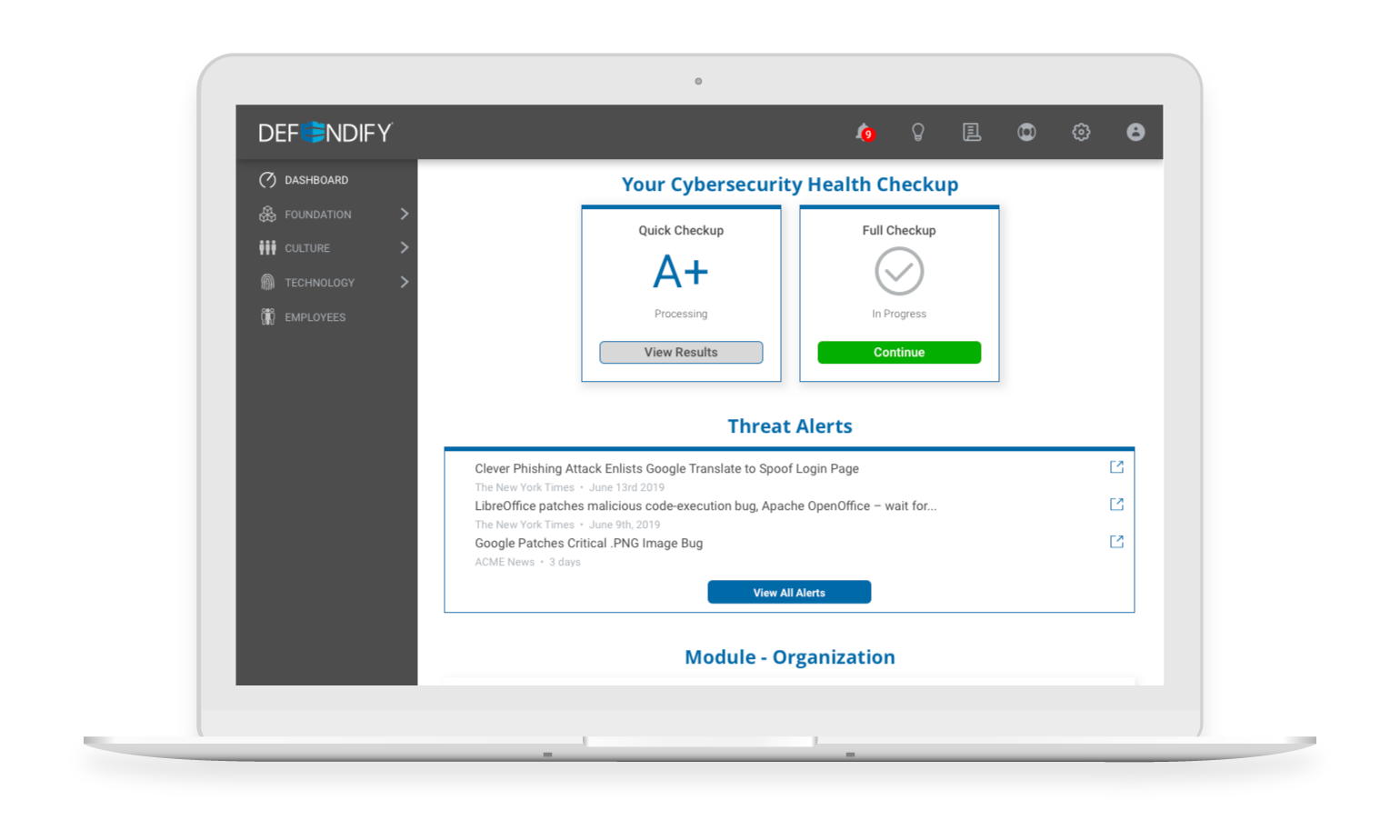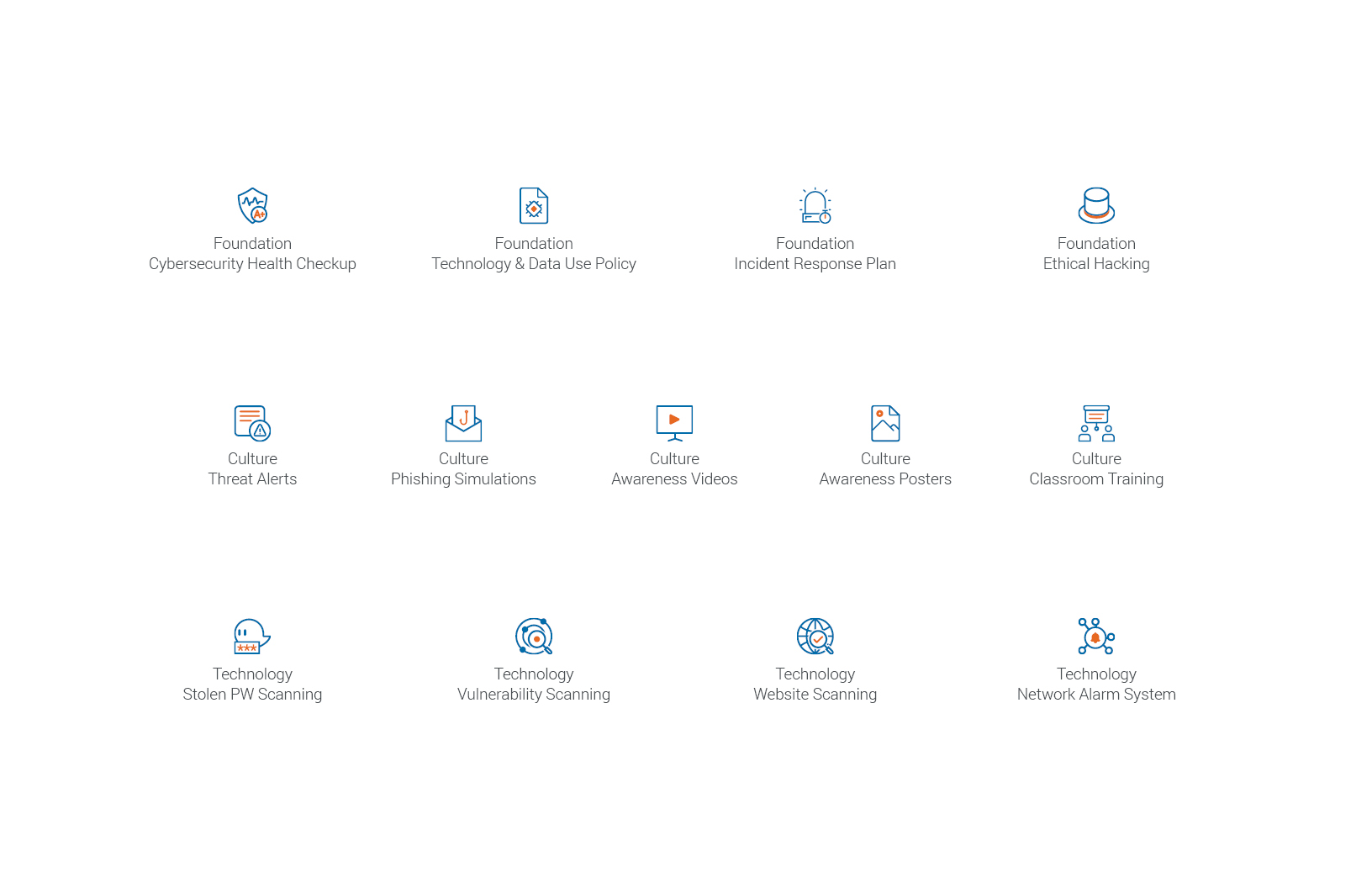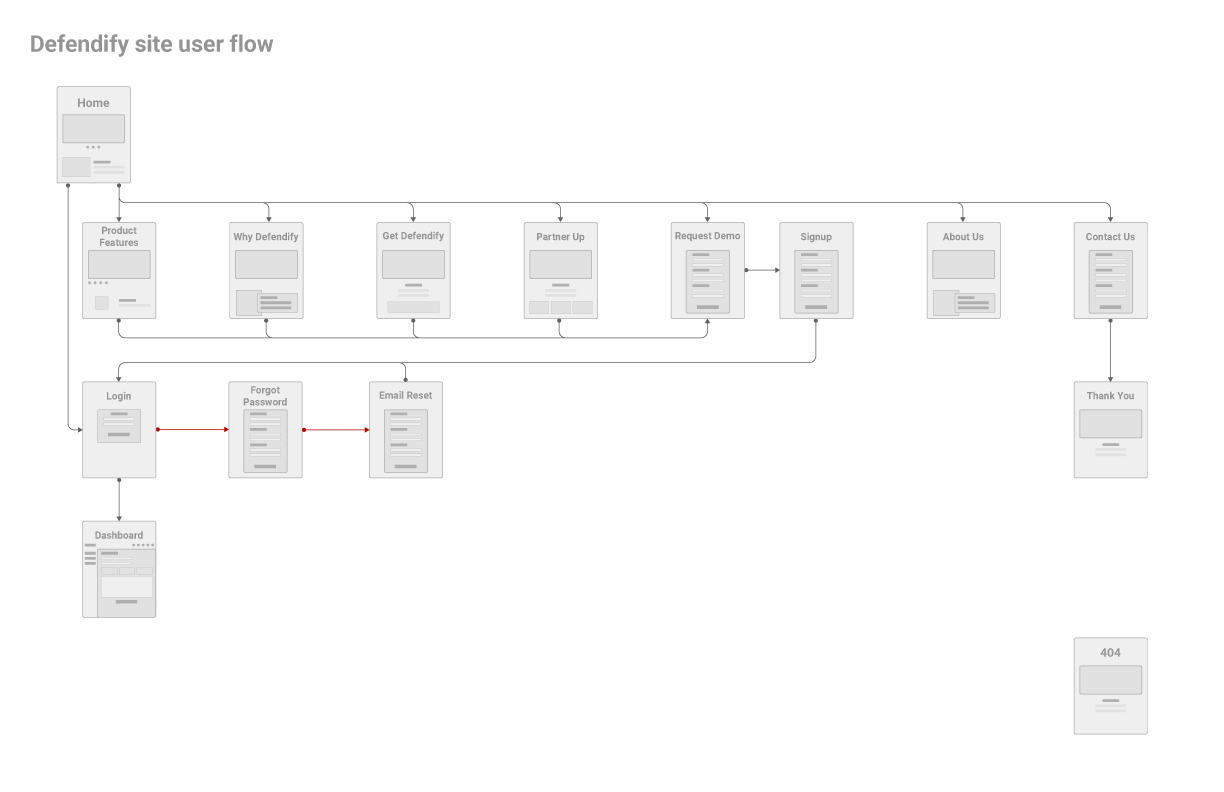Defendify offers complete cybersecurity monitoring, support, and advice without hassle. Defendify’s key point of difference is making it easy to enact a cybersecurity culture, securing data and technology with ease and simplicity.
The all-in-one cybersecurity platform.
Powering providers, protecting businesses.
Affordable. Flexible. Scalable.
Values
Philosophy
Simple usability and interactivity are the undercurrents to any truly
successful digital strategy by creating an immersive and streamlined web-based user experience that drive user engagement.
What is Defendify?
Defendify (Launch Security) provides each of its customers with a running program of cybersecurity that includes three key layers of security: Foundation, Culture, and Technology. A “program” can be characterized as follows:
- Runs annually; day 1 being the annual renewal date
- Includes at least one component of each of the three layers (Foundation, Culture, Technology)
- Includes one or more components that happen intermittently (quarterly or monthly)
- Includes one or more components that are always-on
Challenges
The primary challenge is that the process starts with a group of services that are performed over a short period of time which are then followed by services that are rendered both a. intermittently and b. ongoing.
Additionally, the initial services that are performed over a short period of time are not a one-time service. While these services will be the first set of services done when starting a new program, said services will occur at the beginning of each year (the nature of the work will be slightly different, but the same services are required to start each year).
To understand the flow from the user’s perspective
meet Gene, Caroline, and Jake:

Old-School Gene, family business owner
Gene owns an inherited family business with around 20 employees – a furniture store, restaurant, or construction company. He’s 63, and not especially tech-savvy. He most likely gets his industry information from trusted contacts and trade magazines rather than the internet.
Business Goals:
Maintain/increase profitability, build brand loyalty and reputation.
Cybersecurity Point of View:
He’s read about cyberattacks and data breaches in industry publications, but has no idea how to start protecting the company – or he thinks it’s not likely to impact him. If he has IT staff or resources, he assumes it’s covered already.

C-Suite Caroline
Caroline is a 43-year old Wharton grad who was hired as CFO of a startup, which currently has around 50 employees, many of whom are recent college graduates.
Business Goals:
Get to profitability, win over enterprise clients.
Cybersecurity Point of View:
Her company collects substantial amounts of user data, and she’s extremely concerned about risk related to both employee behavior and to the many cloud-based services the company uses, but also constrained in how she uses her budget as she scales her team.

Jake, the IT guy
Jake the IT guy is 26, and works at a company with around 100 employees. Whenever they have a problem with their computers, or with their emails bouncing, it’s up to him to fix it, along with updating the company website and working on other corporate intranet projects. He’s got a lot of balls in the air at once.
Cybersecurity Point of View:
Jake knows cybersecurity is important, and has installed Norton Antivirus and other software to protect his company. He’s also aware that many of the employees are clueless about security protocol, and is worried that something might slip by when he’s focused on his many other initiatives. While he’s not ultimately responsible for purchasing cybersecurity tools, he’s often a gatekeeper to get to the CEO.
Initial wireframes
Visual Articulation of Services
Create a visual representation of an example program that reflects the process, services included, and occurrence of services. This will allow prospects and customers to better understand what they’re getting and how the program works in the context of time.
Initial prototype
The marketing site


Minimum Viable Product
The Dashboard
Create a visual representation of an example program that reflects the process, services included, and occurrence of services. This will allow prospects and customers to better understand what they’re getting and how the program works in the context of time.
Minimum Viable Product
Service Icon Library
A crucial first step towards a design system.


